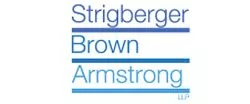Limitation periods continue to be a hot topic in the context of disability benefits. A recently released Divisional Court decision seems to have shed a little light on this matter. In Western Life Assurance Company v. Penttila, the insurer brought a summary judgment motion to dismiss the plaintiff's claim due to being statute barred and out of time. The motion was denied. The insurer appealed the motion judge's decision.
The relevant dates in this matter are as follows:
- May 16, 2012 - the plaintiff was approved for long term disability benefits due to back problems.
- February 19, 2013 – the insurer advised the plaintiff that her benefits would be denied as of March 7, 2013 due to a change in the definition of her disability. The insurer's correspondence advised that she could appeal its decision by providing a written request for review along with supportive medical documentation.
- April 8, 2013 – the plaintiff advised the insurer that she wished to appeal the denial, and provided further medical information.
- November 13, 2013 - the insurer requested reports from two doctors from the plaintiff and advised: "upon receipt of all of the above requested information, we will complete our review of your appeal and advise you of the decision."
- The plaintiff provided the requested documentation. On October 21, 2014, the insurer advised that the file had been reviewed and that its position "remained unchanged."
- May 25, 2015 - the plaintiff requested a letter from the insurer that outlined its decision from its review of her file.
- June 18, 2015 - the insurer sent a letter advising that it could not conclude on the basis of the information available that she was unable to perform her occupation and that benefits beyond March 6, 2013 remain declined.
- June 6, 2016 - the plaintiff issued a Statement of Claim.
At the summary judgment motion, the insurer argued that the Statement of Claim was issued outside of the two year limitation period, which should have commenced as of either February 19, 2013 (the date of the denial letter) or March 7, 2013 (the initial termination date). The motion judge held that either October 21, 2014 (the date the insurer denied the plaintiff's appeal) or June 18, 2015 (the date of the insurer's final letter) were the applicable dates on which a reasonable person would have understood that a proceeding was a legally appropriate means to seek a remedy.
On appeal, the Divisional Court found that the motion judge was correct in holding that the triggering event for the commencement of the two-year limitation period was the date upon which it would be legally appropriate to commence legal proceedings to seek payment of disability benefits that the insurer refused to pay. Given that there was an agreed upon right to appeal the insurer's denial directly to the insurer, it would be premature to commence legal proceedings until that process ran its course.
As a result, the Divisional Court upheld the Motion Judge's decision, dismissed the summary judgment motion and awarded costs to the plaintiff.
Takeaway
This decision supports the idea that the limitation period for commencing a claim at Court in the disability context only begins to run once there is a final, clear, unequivocal denial of benefits. It also supports the idea that the limitation period only commences once it becomes "legally appropriate" to commence a Court proceeding. If there is another method of appeal that is either agreed upon or should reasonably be concluded prior to commencing a Court proceeding, the limitation period will likely commence only after that appeal process is completed.
This means that insurers should be very wary about providing open-ended rights to insureds to appeal the denial of disability benefits. The insurer should be able to demonstrate that a final decision was made and that the decision was communicated to the insured in a way that makes the denial clear and unequivocal.
See Western Life Assurance Company v. Penttila, 2019 ONSC 14 (CanLII)
The content of this article is intended to provide a general guide to the subject matter. Specialist advice should be sought about your specific circumstances.

